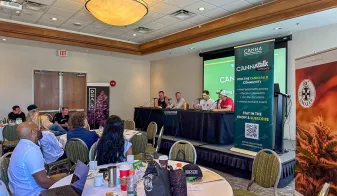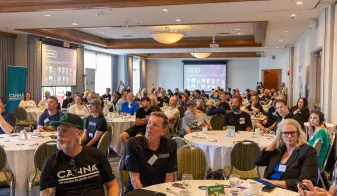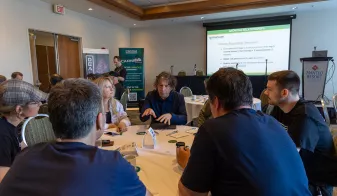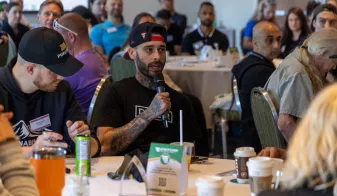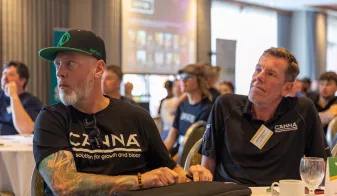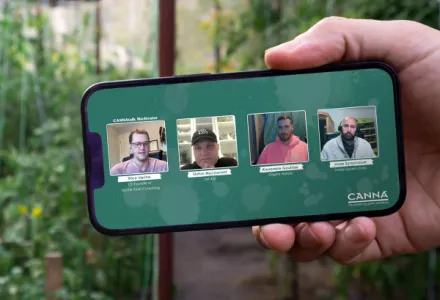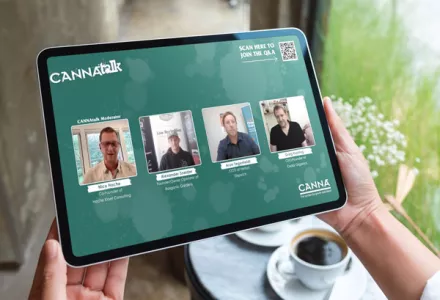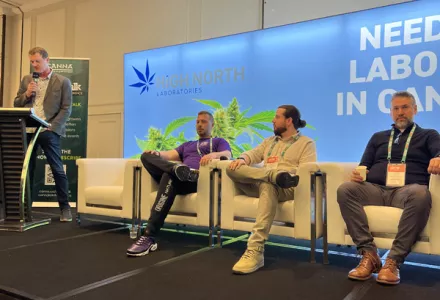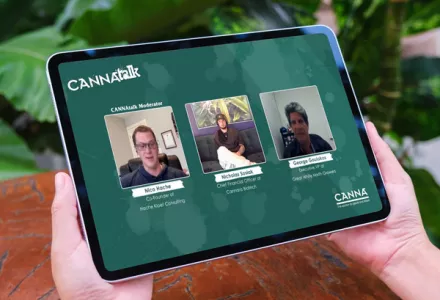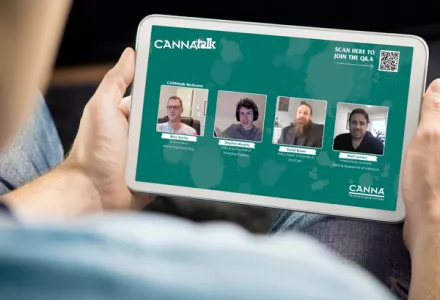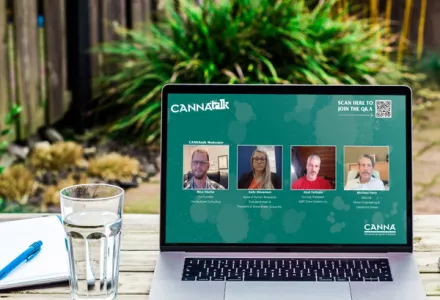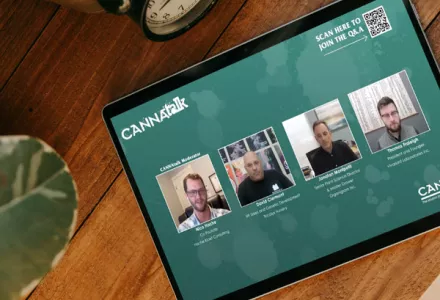Panelists:
Monday, June 10th in Kelowna, BC
We had a great time at StratCann’s “Growing Relationships” event in beautiful Kelowna, B.C. where the CANNAtalk discussion was focused on navigating the cannabis retail landscape both domestically and internationally with producers, processors and distributors from British Columbia. Panelists were invited to share lessons learned, areas of risk and opportunities for success selling cannabis in Canada and abroad.
While most producers or processors on the panel acknowledged that it was important to work with more than one provincial board, some noted that there are nuances between them, for example:
- Ontario can take 6 months from submission to market and their payment terms can make it challenging for cash flow. That said, Ontario is a massive opportunity as one panelist noted: “Ontario sells cases by the hour, while British-Columbia sells cases by the week.”
- British-Columbia takes approximately 30-40 days to market and remits payment the fastest. The BCLDB monitors a lot of data and wants to ensure correct product placement, so if they suggest a retail price, you should heed their advice as they likely have access to information that you do not.
- Nova Scotia is one of the only provinces that asks for a sample before purchasing which could level the playing field when provinces are trying to purchase based on quality.
It would benefit the industry as a whole if all the provinces worked together to build best practices when establishing a path to market. The sharing of data, that most currently do not, could transform how operators determine which products to bring to market.
Outside of the provincially run board, British Columbia has a couple of different paths to market that are not as familiar in other provinces, for example, direct-to-retail sales and farmgate. Each path comes with its own challenges and opportunities.
DIRECT-TO-RETAIL:
BC has a direct-to-retail program, which at first glance seems like an excellent opportunity for some of the smaller growers, however, at a closer look it does not have any cost savings rather any perceived savings are in fact incurred with other responsibilities passed onto the grower that they cannot recoup, essentially resulting in no net savings.
What it can do is allow growers to trial a product in the market before committing to the BCLDB. It also allows smaller growers who can’t meet the volume demands from the BCLDB to play in the market. A downfall for retailers looking to purchase directly from growers is that there is no coordinated approach from the government to list who is offering direct-to-retail solutions. As of now, it will be up to individual growers to communicate with retailers. Also important to note is that retailers cannot buy products with their credit cards (the changes to Schedule 3 in the US might have an impact on this down the road), which limits their ability to onboard more small cultivators without going through the BCLDB.
FARMGATE:
The general consensus from the panelists and the growers in the room is that Farmgate is not a viable business opportunity for most. Besides the $10k application fee (with no guarantee of license), the lack of transparent guidelines and interpretation of the application parameters are a barrier, and your location will for sure be the biggest risk of all. If people don’t know where you are now, getting this additional license won’t help you because it does not permit you to advertise your store. There are other risks like the potential for cross-contamination of your crop and of course, security to be considered as well. It is also worth noting that even if you are successful in getting your farmgate licence, you still have to register your SKU with the BCLDB and sell your product back to yourself in order to sell on site.
Farmgate has the opportunity to be such a great addition to the cannabis sector. Unfortunately, right now the small number of applicants has the LDB thinking there is a lack of interest which is not entirely true. The industry needs to communicate with the government. This is not the case, it is the current regulations that make it unappealing and risky for most.
Determining which products to bring to market:
There were a few different schools of thought around product differentiation:
- Focus: only have 1-2 strains and do it well. Be consistent, and build a following. Lean into your sweet spot!
- Or have variation in products to meet emerging demands and diversity of consumer interest.
Regardless of your preference, here are some key takeaways that all growers should consider:
- Engage with processors before you are ready to go to market as processors may not have an available SKU for the market segment you are looking to play in. You may be forced to wait or bumped into a market segment at a lower rate of return.
- Get a handle on margins. Know how to manage your costs and understand in detail your cost per gram in order to know where you can be flexible with pricing.
- Highest price products generally have the lowest velocity of sales.
- You should always have an empty vault – DO NOT HOLD ONTO PRODUCT. Sell what you grow!
- Understand the market so you know where you need to price your product.
If the market is at 1.25 per gram, you can’t come in and expect $2+ - Talk to retailers, as they want to understand you and your story.
- Social media is your friend, so be purposeful and build a following.
The notion of international sales was mentioned, but so too were the inherent risks of playing in that market without the proper research. There was some concern as well that without regulatory support for domestic sales, more and more producers will ship products to the international markets impacting the ability for consumers and Canada to have access to quality cannabis.
At the end of the day, finding a path to market is paramount. To be successful, you need to know your cost per gram to understand your negotiating position. You need to not only know what market segment you are hoping to play in, but you should also have done a competitive analysis to see what other products are also in that market. Know your market presence - do you have a brand? Are you tried and true, or are you new to the market?
These are all the factors that will impact your price point!
We can all agree that knowing where to price your products is crucial, but so too is building relationships with retailers, regardless of whether you are doing direct-to-retail sales or using the provincial boards. If they know you and your story, they are more likely to remember your products when purchasing.
Our CANNAtalk discussions continue throughout the year, so stay tuned for upcoming events and:






